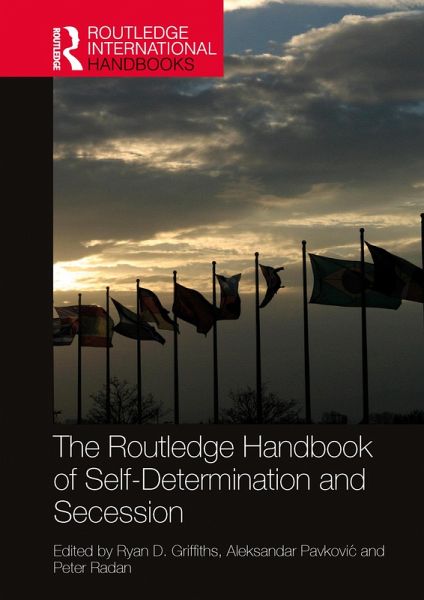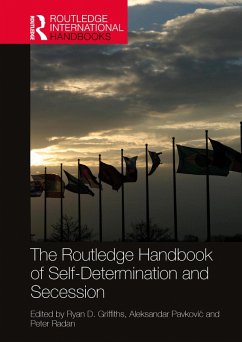
The Routledge Handbook of Self-Determination and Secession (eBook, ePUB)
Versandkostenfrei!
Sofort per Download lieferbar
44,95 €
inkl. MwSt.
Weitere Ausgaben:

PAYBACK Punkte
22 °P sammeln!
The Routledge Handbook of Self-Determination and Secession explores the various debates surrounding the issues of self-determination and secession, and the legal, political, and normative implications they give rise to.Offering a broad survey of the state of the sub-discipline today, the chapters are divided into seven key parts: an Introduction, Self-Determination, Explaining and Justifying Secession, Secession Strategies, Counter-Secession Strategies, International Law and Secession, and Constitutional Law and Secession. The authors, from a range of disciplinary backgrounds, explore all the ...
The Routledge Handbook of Self-Determination and Secession explores the various debates surrounding the issues of self-determination and secession, and the legal, political, and normative implications they give rise to.
Offering a broad survey of the state of the sub-discipline today, the chapters are divided into seven key parts: an Introduction, Self-Determination, Explaining and Justifying Secession, Secession Strategies, Counter-Secession Strategies, International Law and Secession, and Constitutional Law and Secession. The authors, from a range of disciplinary backgrounds, explore all the recent approaches to secession and self-determination based on strategic interaction of major actors in a secession process.
This handbook will be of great interest to students and researchers from a variety of disciplines including politics and international relations, security studies, and law.
Offering a broad survey of the state of the sub-discipline today, the chapters are divided into seven key parts: an Introduction, Self-Determination, Explaining and Justifying Secession, Secession Strategies, Counter-Secession Strategies, International Law and Secession, and Constitutional Law and Secession. The authors, from a range of disciplinary backgrounds, explore all the recent approaches to secession and self-determination based on strategic interaction of major actors in a secession process.
This handbook will be of great interest to students and researchers from a variety of disciplines including politics and international relations, security studies, and law.
Dieser Download kann aus rechtlichen Gründen nur mit Rechnungsadresse in A, B, BG, CY, CZ, D, DK, EW, E, FIN, F, GR, HR, H, IRL, I, LT, L, LR, M, NL, PL, P, R, S, SLO, SK ausgeliefert werden.













